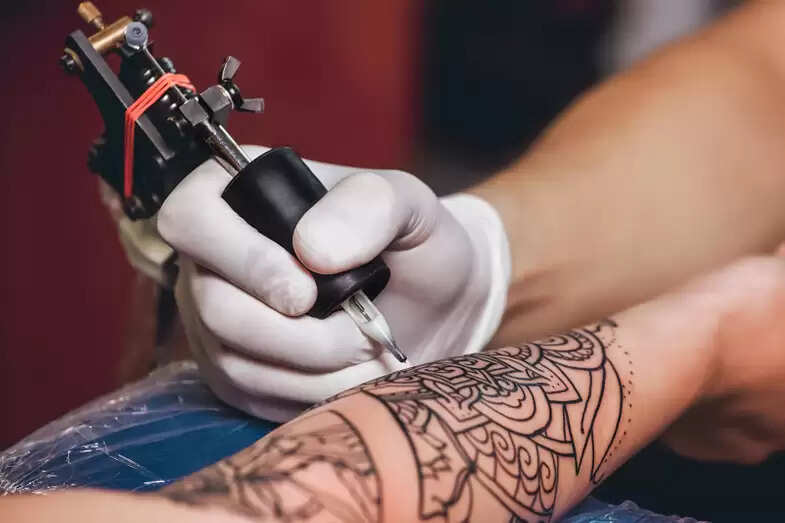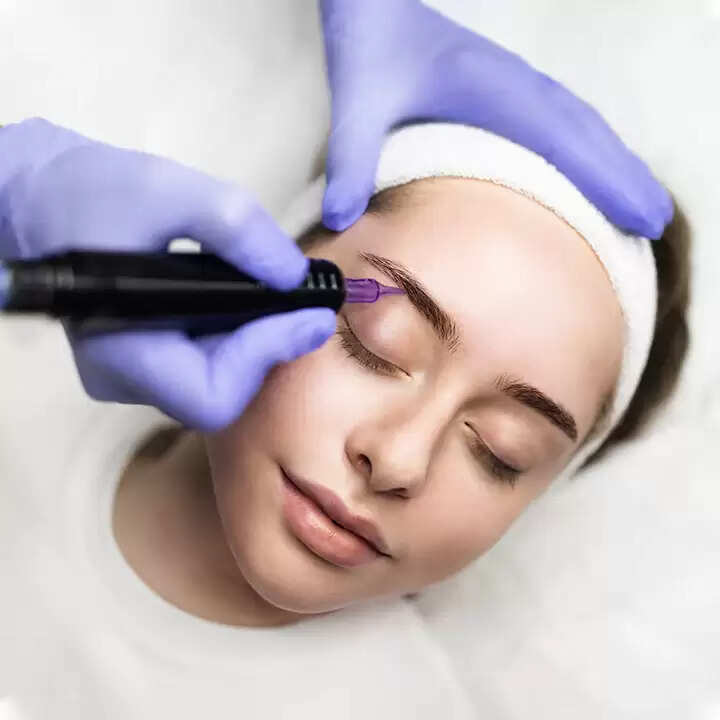Tattooing vs. PMU - What's the Difference?

When you think of body art, tattoos likely come to mind. Isn’t it? — But what about permanent makeup (PMU)? Though they both (PMU and Tattoo) involve needles and pigments, they serve very different purposes.
So, if you are wondering whether to get a tattoo or explore PMU, understanding the key differences can help you make the right decisions.
Hence in this blog, you will go through an in-depth exploration of Tattooing Vs. PMU and learn what sets them apart and which might be right for you.
Let’s get started.
What is Tattooing?
Tattooing involves inserting ink into the skin to create permanent designs or symbols. Artists use a needle to deposit the ink, which forms images that last a lifetime.
Tattooing boasts a rich history that stretches across various cultures and centuries. Ancient civilizations like the Egyptians and Polynesians used tattoos to symbolize status, spirituality, and protection. Over time, tattooing evolved from a cultural practice to a mainstream form of self-expression. Today, people choose tattoos to honor loved ones, commemorate significant events, or simply showcase their artistic taste.
Surprisingly, the popularity of tattoos in modern society is so high that a tattoo school now offers training on how to create successful tattoos. As tattoos continue to evolve and gain widespread acceptance, they offer individuals a unique way to express their identity and personal stories.
What is PMU?
Permanent Makeup (PMU) involves applying pigments to the skin to enhance or replicate natural facial features like eyebrows, eyeliner, and lips. Artists use specialized tools to implant the pigment just below the skin’s surface, which creates a look that can last several years.

PMU has roots in ancient beauty practices, where people used natural dyes to enhance their appearance. Over time, the techniques evolved, which become more sophisticated and precise. Today PMU is widely used for cosmetic purposes which offers a long-lasting solution for those who want to save time on daily makeup routines. It’s a popular choice for individuals seeking a polished, natural look with minimal maintenance.
What are the Differences Between PMU Vs. Tattooing?
To simplify your decision-making and help you understand the concepts of PMU and tattooing, let’s explore the differences between them.
Advantages of PMU and Tattooing
Here are the advantages:
PMU —
- Enhances natural facial features with long-lasting results.
- Saves time on daily makeup routines.
- Offers a solution for those with allergies to traditional makeup.
- Provides a boost in confidence for those with conditions affecting their appearance.
- Allows for subtle, natural-looking enhancements that blend with your skin tone.
Tattooing —
- Allows for highly personalized and artistic expression.
- Offers a wide range of designs, from simple symbols to intricate art.
- Creates a permanent, lifelong mark that holds personal significance.
- Can be placed on nearly any part of the body.
- Provides a way to commemorate important life events or loved ones.
Disadvantages of PMU and Tattooing
Here are the advantages:
PMU
- Offers limited customization compared to traditional makeup.
- Requires a skilled technician to achieve natural-looking results.
- May fade unevenly, necessitating touch-ups.
- Involves a painful procedure, particularly around sensitive facial areas.
- Carries risks of allergic reactions or dissatisfaction with results.
Tattooing
- Involves a painful process, especially in sensitive areas.
- Requires significant time and effort to remove or alter if desired later.
- Can pose a risk of allergic reactions or infections.
Here's a table to differentiate between Tattooing and PMU to make you understand the concept more precisely:
| Aspect |
Tattooing |
PMU (Permanent Makeup) |
| Purpose |
Artistic expression and personal symbolism |
Enhancing or replicating natural facial features |
| Design Options |
Wide range of designs, including complex artwork |
Limited to eyebrows, eyeliner, lips, and other facial features |
| Longevity |
Permanent, lasting a lifetime |
Semi-permanent, lasting several years |
| Application Area |
Can be applied to nearly any area of the body |
Primarily applied to the face |
| Pain Level |
Pain varies depending on placement and size |
Typically less painful but can be sensitive, especially around the eyes and lips |
| Color Range |
Extensive color palette |
Limited to natural skin tones and shades |
| Procedure Duration |
Can take several hours depending on the design complexity |
Usually completed within 1-2 hours per session |
| Healing Time |
Takes a few weeks to heal completely |
Typically heals within a week or two |
| Cost |
Can be expensive, especially for large or intricate designs |
Generally less expensive than large tattoos |
| Touch-up Requirement |
Touch-ups may be needed to maintain vibrancy |
Touch-ups required every 1-3 years to maintain results |
Which One Will You Choose?
Understanding the differences will make your decision-making easier. However, choose tattooing if you are looking for a permanent piece of art that carries deep meaning. You can choose PMU if you want to enhance your natural facial features with a semi-permanent solution that simplifies your daily beauty routine. Both have their known advantages and disadvantages; hence, choose the one that suits your body and skin. Remember, taking the time to research and consult with professionals will ensure you make an informed choice



